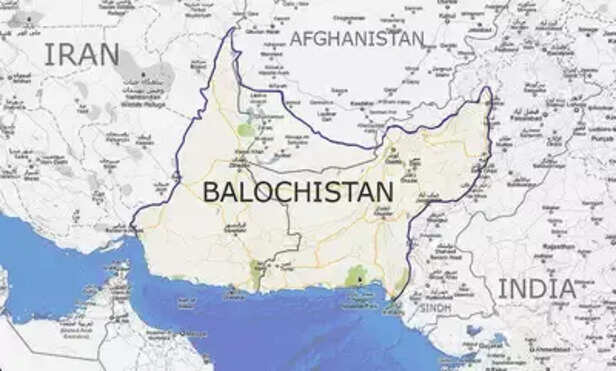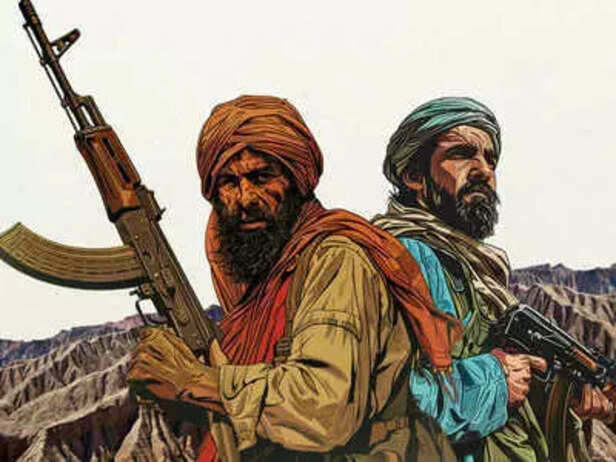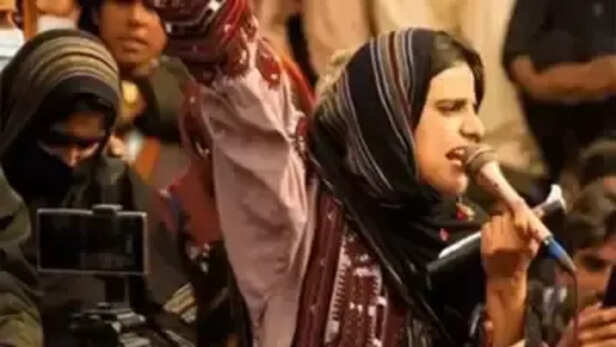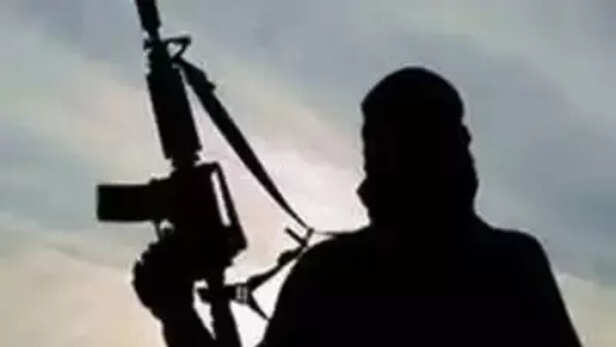Why Pakistan Fears Balochistan - and What They’re Hiding from the World
Riya Kumari | May 16, 2025, 14:24 IST

( Image credit : Times Life Bureau )
Balochistan, Pakistan’s largest yet most neglected province, stands as a stark example of state-led oppression, forced occupation, and systemic human rights violations. Despite its rich natural resources, the region remains mired in poverty, political repression, and a growing separatist insurgency. Recent declarations of independence by Baloch leaders and a surge in militant resistance underscore the deepening crisis that continues to draw international concern.
Balochistan, Pakistan’s largest and resource-rich province, has long been a crucible of conflict, resistance, and repression. Despite its vast natural wealth, the region remains underdeveloped and marginalized. Many Baloch nationalists argue that their homeland was annexed by Pakistan in 1948 without the consent of its people, igniting a decades-long insurgency. Today, Balochistan stands as a stark example of how state power can be wielded to suppress ethnic identity, political dissent, and basic human rights.
A History of Forceful Integration

The roots of Balochistan’s unrest trace back to March 1948, when the Khan of Kalat, the region's ruler, was coerced into acceding to Pakistan. This move was met with resistance from Baloch leaders and sparked the first of several insurgencies. Since then, the region has witnessed multiple uprisings, with the latest insurgency reigniting after the 2006 killing of veteran leader Akbar Bugti by the Pakistan Army. This event galvanized a new generation of Baloch nationalists and militants, who view Islamabad’s control as illegitimate and exploitative.
The Pakistani state has responded with overwhelming military force, including airstrikes and ground operations, often targeting civilian populations. India has raised these concerns at the United Nations, accusing Pakistan of using air power against its own people and systematically violating human rights in Balochistan.
Systematic Human Rights Violations

Human rights organizations have documented a disturbing pattern of abuses in Balochistan. The Baloch National Movement’s human rights wing, Paank, reported 28 cases of torture, five extrajudicial killings, and 33 enforced disappearances in February 2025 alone. The UN and Amnesty International have condemned Pakistan’s crackdown on Baloch activists, urging the government to end the cycle of repression.
The “kill and dump” policy—where abducted individuals are tortured and their bodies dumped in public spaces—has become a hallmark of state terror in the region. The recent killing of renowned Baloch car racer Tariq Baloch is a chilling example of this tactic.
Voices of Resistance and the Struggle for Identity

Despite the risks, Baloch activists continue to speak out. Mahrang Baloch, a prominent human rights defender, became an activist after her father was abducted and later found dead. She has led protests against the exploitation of Balochistan’s resources and the systemic discrimination faced by Baloch students.
In a bold move, Baloch leader Mir Yar Baloch declared Balochistan’s independence on May 14, 2025, stating that the region has never been a legitimate part of Pakistan. He appealed to Indian media to stop referring to Balochs as “Pakistan’s own people,” asserting a distinct Baloch identity separate from the Pakistani state.
Escalating Insurgency and Regional Implications

The Baloch Liberation Army (BLA) has intensified its insurgent activities, launching “Operation Herof 2.0,” which included 78 coordinated attacks across 58 locations in Balochistan. These attacks primarily targeted military and security positions, signaling a sustained resistance movement against Pakistan’s authority in the region
The insurgency has gained momentum with the involvement of young, educated radicals and alleged external support, further complicating the security landscape. The situation has led to a security crisis for Pakistan, with calls for a change in military policy and recognition of the wider geopolitical dynamics at play.
Conclusion
Balochistan's struggle is emblematic of the consequences of forceful occupation and systemic repression. The Pakistani state's actions in the region have not only violated human rights but have also fueled a persistent insurgency. As calls for justice and autonomy grow louder, the international community faces a moral imperative to support the Baloch people's quest for self-determination and to hold Pakistan accountable for its actions.
A History of Forceful Integration

Balochistan
( Image credit : Times Life Bureau )
The roots of Balochistan’s unrest trace back to March 1948, when the Khan of Kalat, the region's ruler, was coerced into acceding to Pakistan. This move was met with resistance from Baloch leaders and sparked the first of several insurgencies. Since then, the region has witnessed multiple uprisings, with the latest insurgency reigniting after the 2006 killing of veteran leader Akbar Bugti by the Pakistan Army. This event galvanized a new generation of Baloch nationalists and militants, who view Islamabad’s control as illegitimate and exploitative.
The Pakistani state has responded with overwhelming military force, including airstrikes and ground operations, often targeting civilian populations. India has raised these concerns at the United Nations, accusing Pakistan of using air power against its own people and systematically violating human rights in Balochistan.
Systematic Human Rights Violations

Balochastan and Pakistan
( Image credit : Times Life Bureau )
Human rights organizations have documented a disturbing pattern of abuses in Balochistan. The Baloch National Movement’s human rights wing, Paank, reported 28 cases of torture, five extrajudicial killings, and 33 enforced disappearances in February 2025 alone. The UN and Amnesty International have condemned Pakistan’s crackdown on Baloch activists, urging the government to end the cycle of repression.
The “kill and dump” policy—where abducted individuals are tortured and their bodies dumped in public spaces—has become a hallmark of state terror in the region. The recent killing of renowned Baloch car racer Tariq Baloch is a chilling example of this tactic.
Voices of Resistance and the Struggle for Identity

Fight for Balochistan
( Image credit : Times Life Bureau )
Despite the risks, Baloch activists continue to speak out. Mahrang Baloch, a prominent human rights defender, became an activist after her father was abducted and later found dead. She has led protests against the exploitation of Balochistan’s resources and the systemic discrimination faced by Baloch students.
In a bold move, Baloch leader Mir Yar Baloch declared Balochistan’s independence on May 14, 2025, stating that the region has never been a legitimate part of Pakistan. He appealed to Indian media to stop referring to Balochs as “Pakistan’s own people,” asserting a distinct Baloch identity separate from the Pakistani state.
Escalating Insurgency and Regional Implications

Attack
( Image credit : Times Life Bureau )
The Baloch Liberation Army (BLA) has intensified its insurgent activities, launching “Operation Herof 2.0,” which included 78 coordinated attacks across 58 locations in Balochistan. These attacks primarily targeted military and security positions, signaling a sustained resistance movement against Pakistan’s authority in the region
The insurgency has gained momentum with the involvement of young, educated radicals and alleged external support, further complicating the security landscape. The situation has led to a security crisis for Pakistan, with calls for a change in military policy and recognition of the wider geopolitical dynamics at play.
